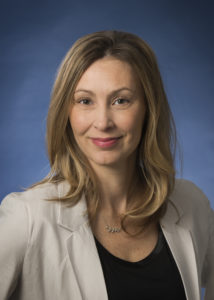Newest Michael Fry Research award recipient for 2016!
Michael Fry Award: Marianne Koritzinsky, MSc PhD
PRIMARY APPOINTMENT:
Scientist, Princess Margaret Cancer Centre (Toronto, Canada)
BIO STATEMENT:
Dr. Koritzinsky is a Scientist at the Princess Margaret Cancer Centre in Toronto and Assistant Professor at the Department of Radiation Oncology and Institute of Medical Science, University of Toronto.
She holds a Master of Science (MSc) degree from the Norwegian University of Science and Technology (1996) and a PhD degree from the University of Oslo (2003). She completed postdoctoral training at Maastricht University in The Netherlands before moving to Canada in 2008. There she was appointed to faculty of the University of Toronto, and Scientific Associate at the Princess Margaret Cancer Centre, before being promoted to Scientist in 2014.
Tumor hypoxia confers poor patient prognosis due to resistance to radiation and chemotherapy, and stimulation of a more aggressive phenotype. The aim of Dr. Koritzinsky’s research program is to increase our understanding of molecular and cellular responses to hypoxia, with the ultimate goal of targeting these responses to improve cancer treatment efficacy, mitigate cancer aggressiveness and improve patient outcomes. Research is focused on determining how cancer cells adapt metabolism and secretion capacity in hypoxia, and therapeutic strategies to reprogram tumor metabolism in order to increase response to radiation are being investigated.
Dr. Koritzinsky is a recipient of the ESTRO-Juliana Denekamp research award and a Terry Fox Research Institute New Investigator award.
MICHAEL FRY AWARD CRITERIA:
The intent is to recognize an individual early in his/her career, but not defined by any specific age. In keeping with the intent of the award, early in career is typically considered to be within 10 years of completion of training (e.g., post-doc, residency, fellowship). A candidate is not required to be a member of the Society, but the work upon which the nomination is based must be in one or more of the areas of radiation research.
